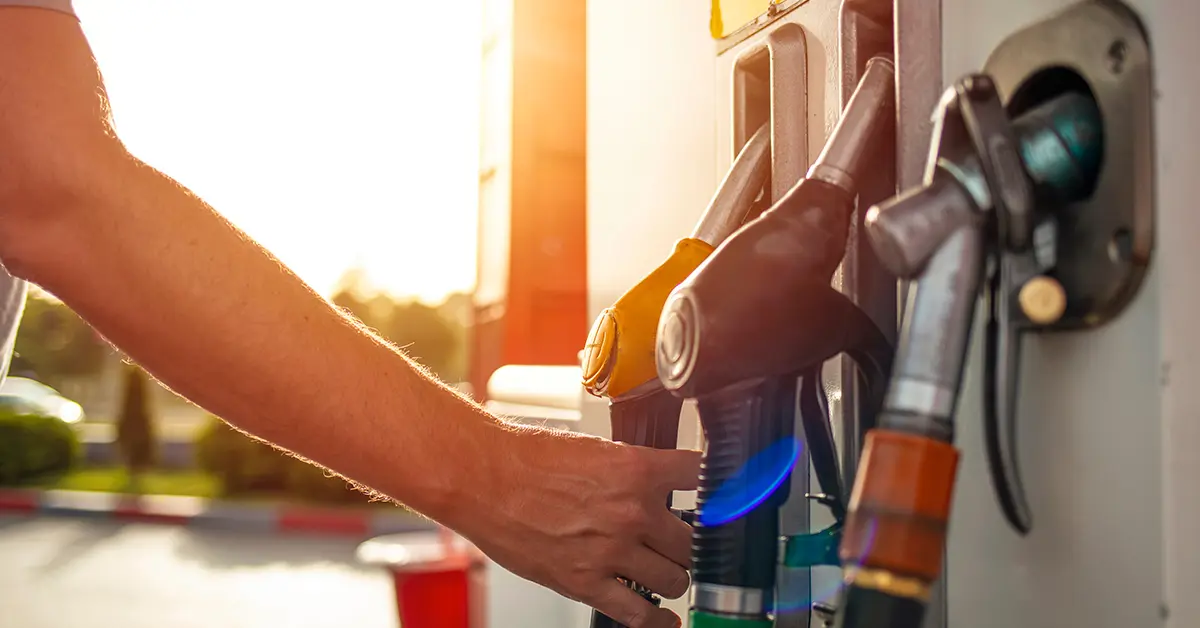How to stop fuel adulteration?

Fraud and corruption are particularly prevalent in the energy sector, and the petroleum industry is not spared from this issue. While the illegal methods used by traffickers change in accordance with the context and evolve with time, the damaging consequences remain the same for governments, oil marketing companies, consumers and the environment.
We previously covered the different methods used by traffickers to divert fuel from its legal uses ; In this article we will focus on adulteration, its consequences and the solution to better control the entire fuel supply.
What is fuel adulteration?
Fuel adulteration involves mixing a foreign substance (i.e Kerosene into diesel, solvents into gasoline) with the fuel. It’s a global issue used to trick consumers into buying substandard fuel to maximize profits without bearing the dangerous impacts of this activity.
Just like theft or cross border smuggling, adulteration always leads to several undesirable effects as the fuel composition no longer corresponds to the standards and quality requirements. For this reason, it’s a crucial topic for many countries which requires important efforts and investments to curb it.
What are the consequences?
The main issue with the introduction of foreign substances is that it deteriorates the quality which leads to more harmful damages. We can identify four main consequences associated with fuel adulteration:
- Environmental & health issues
Mixing uncontrolled substances with fuel leads to higher emissions of dangerous gas such as carbon monoxide or hydrocarbons. It directly affects the level of air pollution and can have serious health effects due to the presence of carcinogenic pollutant in the air. - Car engine damages & safety issues
Using adulterated fuel leads to loss in performance and efficiency and often causes vehicle breakages as a result of premature engine failure. For automobile users it often means high maintenance costs and a significant loss of trust. In the worst cases it can even cause road safety issues. - Tax loss
The whole purpose of fuel adulteration for traffickers is to maximize profit, to do so they buy low tax products to mix them with the fuel which drives huge shortfall in revenues for governments. - Loss of trust
For governments and oil marketing companies, fuel adulteration generates reputational risks and increase claims and dissatisfaction. Overall consumers tend to blame authorities for the bad quality and additional maintenance costs that they have to bear.
The solution
Over the years, many solutions have arisen to help governments and oil marketing companies protect their fuel supplies, with more and less successes. Through oil dyes or fleet management solutions to track tanker trucks, governments were able to deter traffickers without however putting an end to fraudulent practices.
Today technological progress has made it possible to curb the problem of fraud in a lasting way, through fuel marking programs governments and oil marketing companies are slowly winning the battle against these illegal activities.
The fuel markers used in our fuel integrity programmes act as a stamp to guarantee that the fuel supplies sold nationwide come from legal sources and has not been tampered. Associated with regular inspections of retail stations, each programme not only have a deterring effect, but also allows to quickly identify and seize substandard fuel supplies.
The main benefit of fuel markers lies in their ability to chemically stamp the fuel without altering it. It’s an environmentally friendly solution with no abrasive effect on the fuel.
Each marker being unique and undetectable it removes the risk of fraud. In summary as long as the fuel is marked with high quality markers any dilution or alteration can be quickly detected.
Our fuel integrity programmes offer a robust solution to quickly identify fuel that has been tampered with or come from non-legitimate sources, thus ensuring the integrity of products throughout the supply chain, and mitigating against negative impacts on the economy, environment, and consumers.
For more insights about fuel marking check our infographic or contact us at governments@cotecna.com
Latest News

08.04.2025
Innovation and Precision: How Complex Diagnostics Are Transforming Plant Health in the Field
Harnessing Technology for Smarter, More Sustainable Crop Protection.

03.04.2025
Cotecna COO Romain PETIT’s Visit to China
From March 24 to April 1, 2025, Cotecna Group Chief Operating Officer Romain PETIT visited China for a week-long trip.

